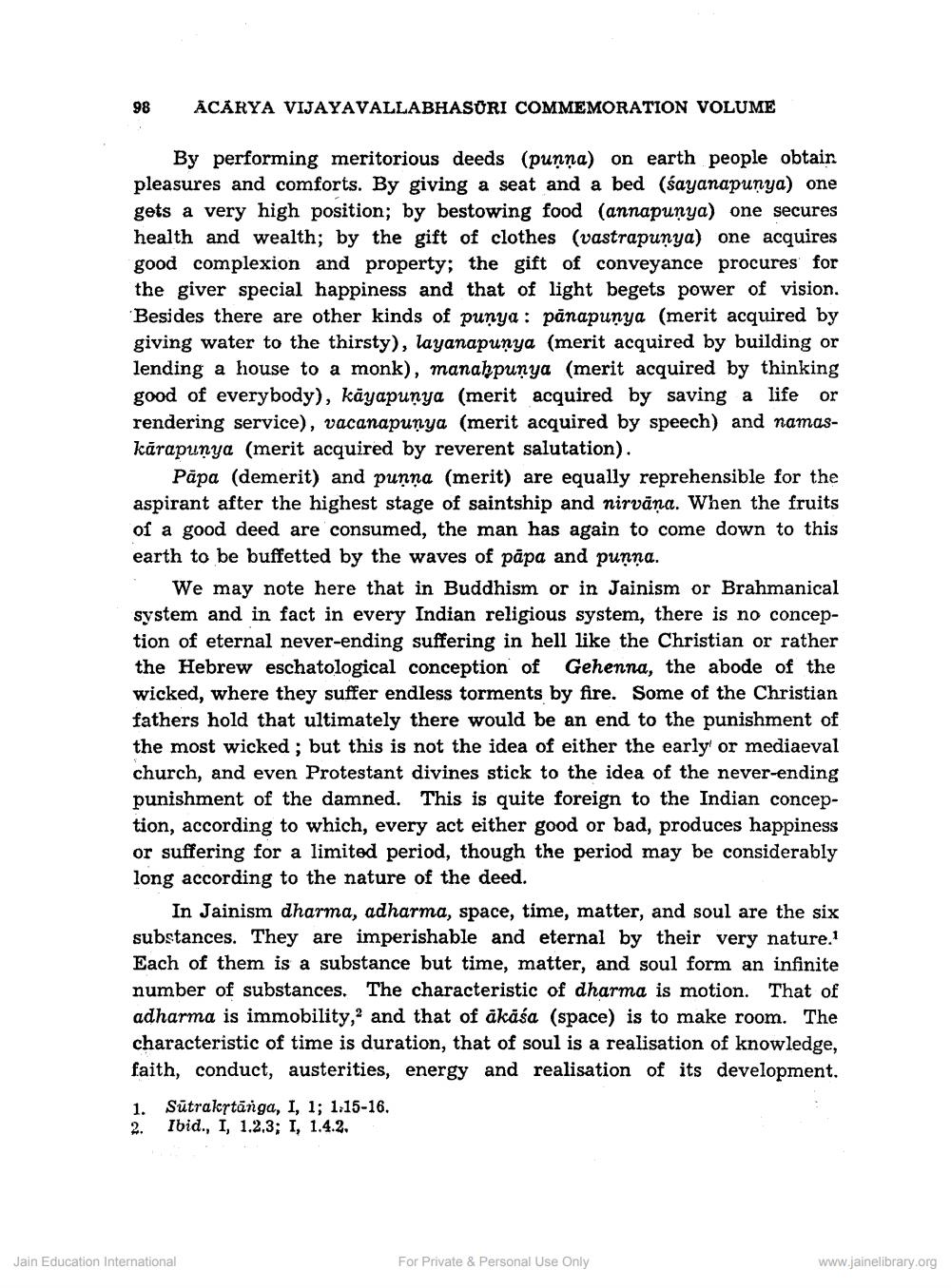________________
98
ACARYA VIJAYAVALLABHASŪRI COMMEMORATION VOLUME
By performing meritorious deeds (punna) on earth people obtair. pleasures and comforts. By giving a seat and a bed (sayanapunya) one gets a very high position; by bestowing food (annapunya) one secures health and wealth; by the gift of clothes (vastrapunya) one acquires good complexion and property; the gift of conveyance procures for the giver special happiness and that of light begets power of vision. Besides there are other kinds of punya : pānapunya (merit acquired by giving water to the thirsty), layanapunya (merit acquired by building or lending a house to a monk), manahpunya (merit acquired by thinking good of everybody), kāyapunya (merit acquired by saving a life or rendering service), vacanapunya (merit acquired by speech) and namaskārapunya (merit acquired by reverent salutation).
Pāpa (demerit) and punna (merit) are equally reprehensible for the aspirant after the highest stage of saintship and nirvana. When the fruits of a good deed are consumed, the man has again to come down to this earth to be buffetted by the waves of papa and punna.
We may note here that in Buddhism or in Jainism or Brahmanical system and in fact in every Indian religious system, there is no conception of eternal never-ending suffering in hell like the Christian or rather the Hebrew eschatological conception of Gehenna, the abode of the wicked, where they suffer endless torments by fire. Some of the Christian fathers hold that ultimately there would be an end to the punishment of the most wicked; but this is not the idea of either the early' or mediaeval church, and even Protestant divines stick to the idea of the never-ending punishment of the damned. This is quite foreign to the Indian conception, according to which, every act either good or bad, produces happiness or suffering for a limited period, though the period may be considerably long according to the nature of the deed.
In Jainism dharma, adharma, space, time, matter, and soul are the six substances. They are imperishable and eternal by their very nature. Each of them is a substance but time, matter, and soul form an infin number of substances. The characteristic of dharma is motion. That of adharma is immobility, and that of akaśa (space) is to make room. The characteristic of time is duration, that of soul is a realisation of knowledge, faith, conduct, austerities, energy and realisation of its development.
1. 2.
Sutralertānga, I, 1; 1:15-16. Ibid., I, 1.2.3; I, 1.4.2.
Jain Education International
For Private & Personal Use Only
www.jainelibrary.org




